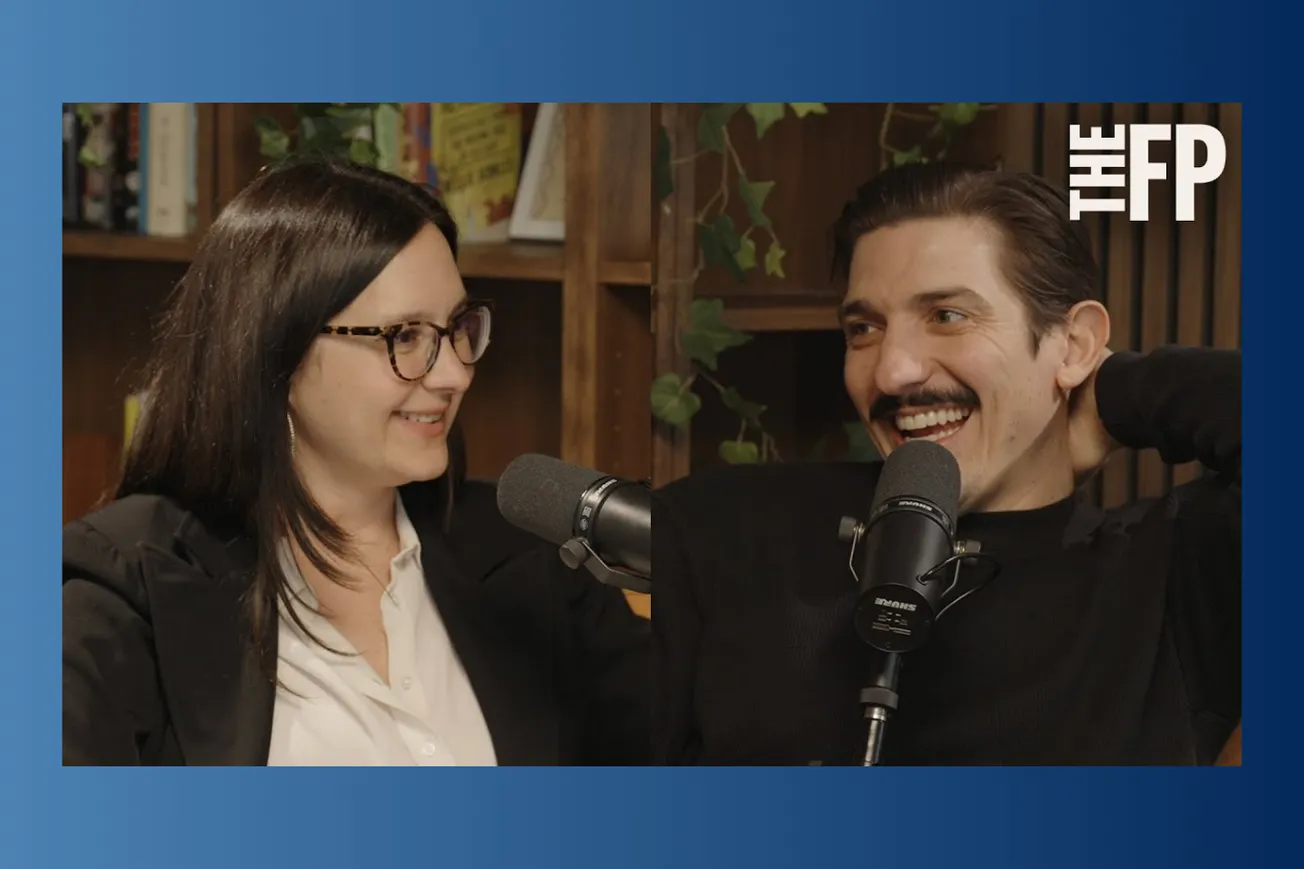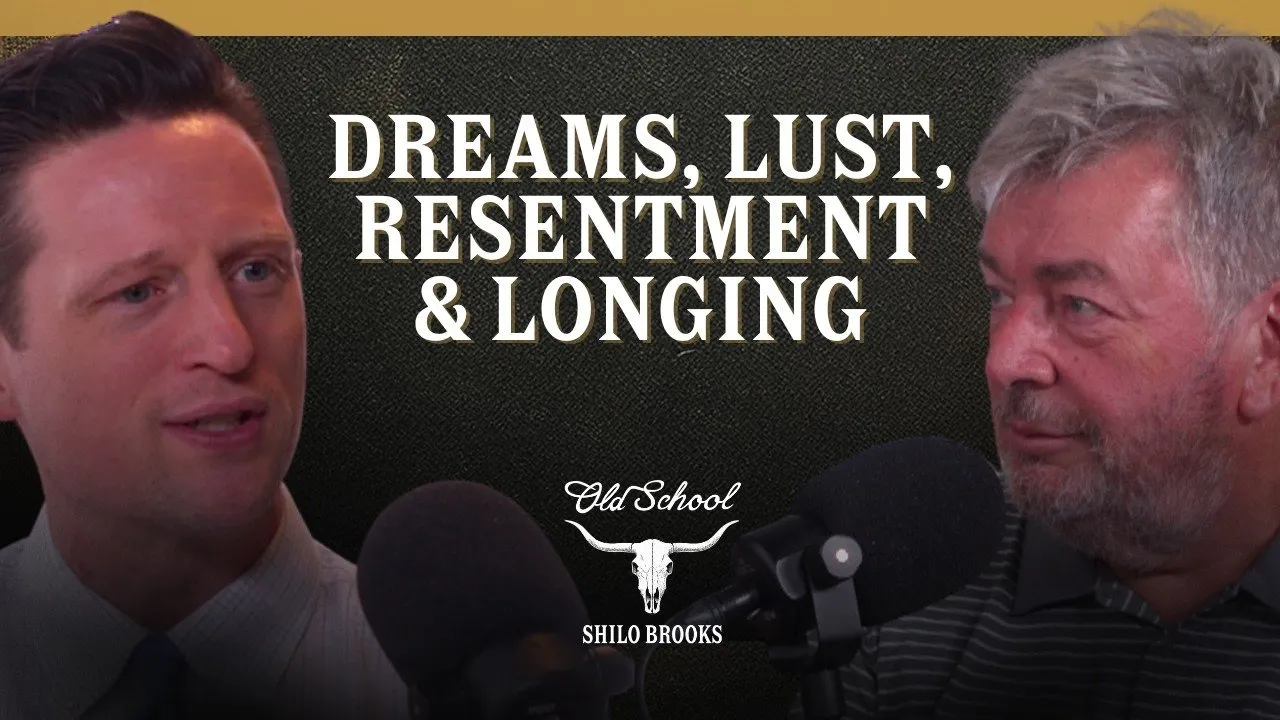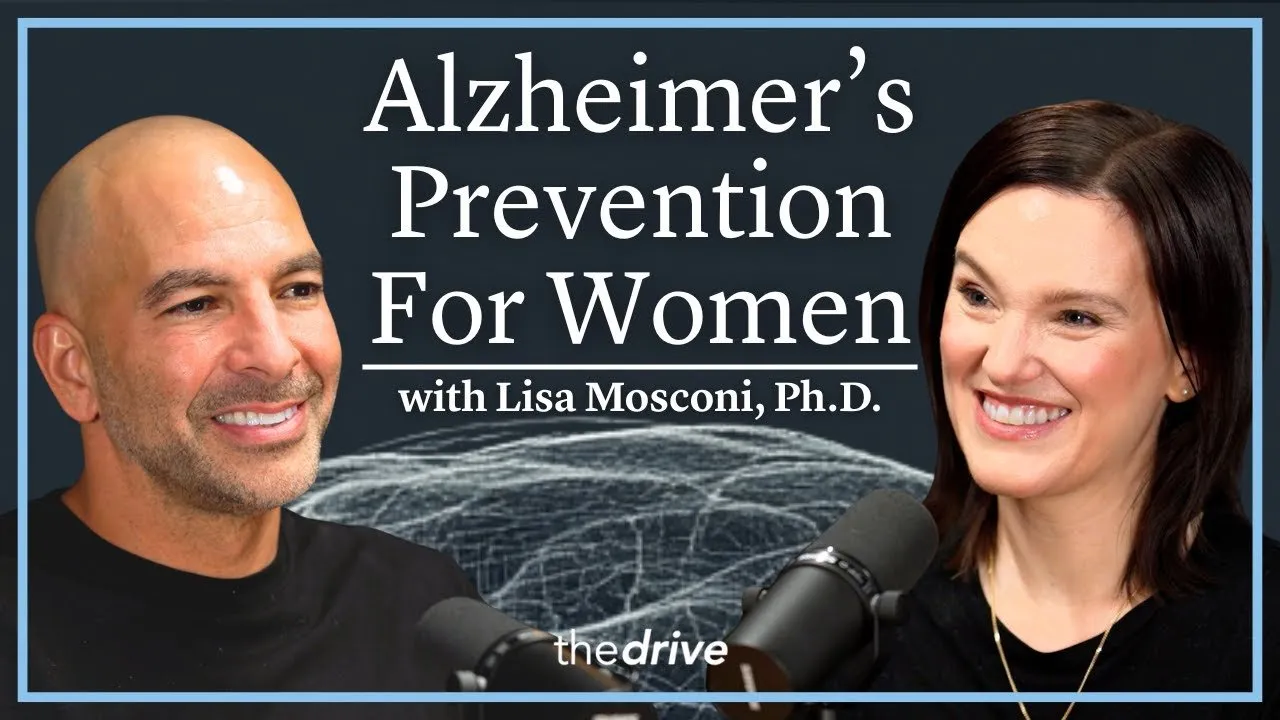Table of Contents
The comedian gets brutally honest about IVF, masculinity, and why vulnerability became his strongest material yet.
Key Takeaways
- Schulz discovered his own fertility issues were the problem, not his wife's, completely shifting his perspective on masculinity and vulnerability
- His latest special tackles deeply personal territory - something he could only do because the fertility struggles were his story to tell
- Sleep training became a philosophical battleground for the new dad, who rejected the "cry it out" method as fundamentally wrong
- The Trump interview experience showed him just how disconnected mainstream media was from actual public sentiment
- He believes comedians have unique cultural power precisely because of their plausible deniability and authentic voice
- Anti-Semitism spikes correlate directly with economic anxiety - when people can't afford basics, resentment toward successful groups intensifies
- The pendulum swing from extreme censorship to anything-goes speech will eventually find middle ground through cultural exhaustion
- Democrats need to focus on class issues rather than identity politics to regain working-class appeal
- His comedy philosophy centers on maintaining authenticity over pandering to any ideological base, even when under attack
The Fertility Journey That Changed Everything
Here's what nobody tells you about trying to get pregnant: your whole life, it's "don't get pregnant, don't get pregnant, don't get pregnant" - then suddenly you're trying and it's impossible. Andrew Schulz found himself staring at this contradiction, watching athletes like Nick Cannon seemingly have zero problems while he and his wife struggled month after month.
The night before getting their fertility test results, Schulz did something he'd never done before - he prayed. Not for good news exactly, but for something specific: "God, if there is a problem just make it me. I don't think she can handle it." Sometimes the universe has a sense of humor about these things.
- When the results came back showing his sperm was the issue, not his wife's "perfect eggs and perfect ovaries," it completely flipped his understanding of the situation
- The initial assumption had been hers - both of them thinking it was her problem, with his wife even creating elaborate backstories like "I fried my ovaries watching Friends on my laptop while lying on my stomach"
- Learning it was his fertility opened up the material for comedy in a way it couldn't have been if the struggles were hers - it became his vulnerability to share, not hers
- The revelation sent him into what he calls an "almost existential crisis" wondering why God wouldn't want him to have kids, searching for some karmic explanation
What's fascinating is how this personal crisis became the foundation for his most acclaimed work. The moment he started talking about fertility struggles on stage, guys would approach him afterward - "firemen and shit, not some NPR douchebag" - sharing their own silent battles with the same issues.
- Male fertility problems turned out to be far more common than he'd imagined, but completely stigmatized in ways that prevented men from discussing them openly
- The fear wasn't just about judgment from friends, but something more primal - wondering if his wife would still find him attractive if he couldn't "do the thing we're put here to do"
- Those first few weeks after the diagnosis, he found himself watching his wife for signs of disrespect or loss of attraction, expecting her to start treating him differently
- The competitive drive kicked in hard - he became determined to "beat the system" and make it work naturally, putting his wife through months of emotional roller coasters before accepting IVF was the answer
Parenting Philosophy in Practice
Becoming a dad at 41 means you've had plenty of time to develop theories about how you'll do things differently. Then reality hits, and suddenly you're questioning everything, starting with something as basic as sleep.
Sleep training - what a misleading name for what's essentially "ignore your child while they cry for your attention and love." Schulz couldn't bring himself to do it, despite all the parenting books and expert advice pushing the method.
- The French apparently start sleep training at eight weeks, which Schulz sees as proof it's wrong - their whole culture being built on personal indulgence rather than consideration for others
- His inability to follow through on sleep training came down to being "too much of an empath" to ignore his daughter's cries
- Every other form of training involves being present with the thing you're training - you don't "gym train" by not going to the gym
- His 13-month-old daughter eventually started sleeping through the night anyway, proving the method isn't necessary for the desired outcome
The real parenting magic happens in those small moments of connection. His daughter has this gesture where she looks at him from her high chair and makes a little hand motion - in his mind, it's her saying "get over here" like a tiny Spider-Man. His response? He runs across the kitchen in socks and slides right up to her chair, sending her into fits of laughter.
- Making his daughter laugh has become "the best feeling in the world" - a cliché that turns out to be completely true
- He's shocked by how universal the parenting experience is, despite spending his career having unique takes on everything
- The plan is to have as many kids as he can "spoil" - though given their fertility journey, each pregnancy will likely involve IVF again
- Watching his dad's reaction to his Madison Square Garden headline was particularly meaningful, even though his father's dementia means he may not retain the memory
The Cultural Commentary That Hits Different
Schulz has always been observational, but something shifted when he started examining the broader cultural moment we're living through. Maybe it's parenthood, maybe it's just getting older, but his takes on everything from anti-Semitism to political tribalism feel more grounded now.
Take the whole Andrew Tate phenomenon. Here's a guy who's allegedly involved in sex trafficking, with much of the evidence on video, yet he's become some kind of conservative hero because he represents "male strength." It's audience capture taken to its logical extreme - people so desperate for someone to represent something they value that they'll overlook absolutely everything else.
- The emotional need for representation overrides logical evaluation of character - people see what they want to see in figures who seem to embody missing values
- If you can't get convicted of sex trafficking in Romania, "the sex trafficking capital of the world," it suggests a pretty high bar for prosecution there
- The contradiction between celebrating "traditional masculinity" while supporting someone who allegedly exploits women shows how twisted these cultural moments can become
- Meanwhile, Schulz is out here crying at his wedding and talking openly about fertility struggles - showing a different model of what masculine vulnerability can look like
The anti-Semitism spike we're seeing isn't happening in a vacuum. Schulz traces it directly to economic anxiety and the breakdown of institutional trust. When people can afford their rent and eggs aren't $24 a dozen, that ambient suspicion toward successful groups stays ambient. When they can't, it gets much brighter.
- Most Americans have never actually met a Jewish person, despite Jews thinking everyone has met Jews because Jews have met everyone
- The perception of Jews centers on success and separatism - not just that they're successful, but that they only look after their own
- Unlike other wealthy groups like the Rockefellers or Kennedys, Jews don't have the "technically they're on your team religiously" buffer that provides some protection
- Economic resentment + low institutional trust + biblical narratives = a dangerous combination that historically leads to scapegoating
The Media Landscape Revolution
That Trump interview changed everything for Schulz - not just his career trajectory, but his understanding of where American culture actually stands versus where media thinks it stands. Walking around New York City after it aired, having random people yell "MAGA" at him in Tribeca, he knew something fundamental had shifted.
The biggest illusion about the 2024 election wasn't Trump populism - it was straight rejection of the status quo represented by Biden and Harris. People weren't necessarily voting for Trump's policies; they were voting against a system that felt completely disconnected from their reality.
- The amount of positive feedback he got from the Trump interview in liberal New York City showed him how out of touch traditional media assumptions had become
- People felt shame about supporting Trump in NYC because it's "supposed to be this Democrat city," but deep down many weren't voting for Kamala
- The interview's success came from treating Trump like a human being rather than a political figure - letting him be relatable in ways traditional media wouldn't allow
- Comedians have unique access because of "plausible deniability" - they can talk to anyone without the heavy political baggage journalists carry
The shift from traditional gatekeepers to independent creators has been massive, but Schulz sees a correction coming. With so many podcasts and networks, people are starting to crave curation again. They won't necessarily favor Netflix over an independent publisher, but they want some institutional credibility to help them navigate the endless options.
- The bundle-unbundle-rebundle cycle is eternal - we had bundles, broke them apart, and now we're creating bundles again
- Shane Gillis going from being fired from SNL to hosting it twice shows how quickly cultural power can shift when you have "the people" behind you
- Having a direct relationship with your audience provides more security than traditional Hollywood relationships, because once the industry turns on you, you're done
- The challenge is resisting the urge to pander to ideological bases when under attack, even though it would be easier to just pick a side
The Authenticity Trap and Finding Your Voice
The hardest thing about building a career in this decentralized media landscape is maintaining authenticity while building an audience. There's always an ideological base available when you're being attacked - it would be so much easier to just become "some right-wing MAGA lunatic or some lefty" and let the base defend you.
But that's exactly the trap Schulz has spent his career avoiding. Getting called a grifter by both sides is "the cost of doing something truly unique." His guard rails are personal rather than political - he focuses on creating art rather than content, on staying true to his own voice rather than giving people what they want to hear.
- Growing up in a dance family with parents who valued authenticity over success gave him a foundation for resisting audience capture
- The temptation to pick an ideological lane is strongest when you're under attack and need support, but giving in kills what makes you special in the first place
- True artists care about creating something authentic rather than just generating views or reactions - the pretentious-sounding truth about why some people resist the easy path
- Getting criticism from all sides actually validates that you're not just telling people what they want to hear
The Democrats' current struggles illustrate exactly what happens when you lose this authenticity. They've been "hijacked by Ivy League nepo babies" who've never had real jobs but want to lecture working Americans about how to think and vote. It's the least relatable possible messenger for a party that should be representing working people.
- Someone like Jack Schlossberg making videos attacking Trump supporters exemplifies the problem - a fifth-generation trust fund kid who's never earned anything wagging his finger at regular Americans
- The messaging itself isn't necessarily wrong, but it's coming from people with zero credibility to deliver it
- AOC works in her district because people see her as one of them, someone who actually wants to help rather than prove her moral superiority
- Class-based messaging would work for Democrats, but they can't do it authentically because too many of their prominent voices are in the pockets of the very elites they'd need to criticize
Looking ahead, Schulz expects the current anything-goes cultural moment to eventually exhaust itself. We're in the Ferrari phase - people who felt constrained by censorship are now pushing the pedal all the way down, seeing how fast they can go. But eventually, you realize driving 260 mph isn't actually fun, and the pendulum swings back toward some kind of middle ground.
The danger is what happens during that Ferrari phase - some people get mowed down, others crash into poles. That's the cost of free speech, but historically it's a cost we've been willing to pay because the alternative - permanent censorship - is worse for everyone. The key is getting through it without losing the actually important taboos, like the ones that prevent people from spitting on others for who they're married to.
American culture is built on risk-takers - every family here includes someone who left everything behind to come to a place they'd never seen. We're literally descended from the craziest people in our families' histories. That frontier spirit means we want abundance, we want the big bucket of popcorn, and we want leaders who sell us on a lot rather than managing our decline.
Schulz gets this in a way that feels authentic because he's lived it - from struggling with fertility to building an independent media empire to interviewing presidents. He's not telling people how to think; he's sharing what he's learned from actually experiencing the things he talks about. In a world full of people with opinions but no skin in the game, that kind of authenticity is becoming the most valuable currency there is.









